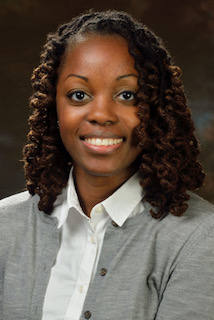BY ARLYN RISKIND | When Jasmine Travers began her career as a new nurse working in an intensive care unit, she immediately realized two things: She had few role models of color at her hospital, and patients of color were treated differently from their white counterparts.
“I noticed differences in how nurses of color were treated, how they were mentored, how they were supported in the ICU, and also how patients of color and/or socioeconomically disadvantaged backgrounds were treated and responded to,” Travers said. “Seeing that drove me to want to understand these issues more and see if I was able to make a difference — not just on my unit, but on a macro level.”
After several years in the ICU, Travers — now an assistant professor at New York University’s Rory Meyers College of Nursing, at 433 First Ave., at 26th Street — decided to do something about it. She is devoting her career to mitigating inequities in patients’ access to equitable care and advocating for a more diverse nursing workforce, both in New York City and across the nation.
Her mission to highlight how people with unconscious biases unknowingly perpetuate inequitable policies, practices and processes in healthcare and what can be done about it was recently featured on “SHIFT Talk,” a nationwide podcast supported by the Robert Wood Johnson Foundation (RWJF) —the nation’s largest philanthropy devoted solely to health.
Travers’s episode, “Diversity, Disparities, Determinants — Oh My,” is a firsthand account of her experiences, many of which mirror some of the bigger issues holding back hospitals and healthcare institutions from achieving health equity.
Everyone should have a fair and just opportunity to be as healthy as possible — that’s the straightforward definition of health equity, explains Travers.
“When you think about removing obstacles to health, such as poverty, discrimination and their consequences, those social determinants of health are the factors that will drive inequitable experiences,” she said. “That can be where a person is born, where they work, where they live, their age, income and access to healthy foods.
“Health disparities are pretty much the product of these inequities. There are differences in the quality of health and healthcare, and this stems across racial, ethnic and socioeconomic groups.”
Nurses who are working on the frontlines of patient care — in the ICU, as Travers once was, but in other settings, too — are well positioned to take on these challenges and create meaningful change for fellow providers and patients.
“Nurses have insights into the challenges that patients, their families and their communities face, far beyond the physical manifestations of their illnesses,” said Beth Toner, RN, MSN, MJ, a senior communications officer at RWJF, which sponsors “SHIFT Talk.” “The COVID pandemic underlined and exacerbated longstanding health equity issues. Our healthcare systems can’t ignore that, in addition to the burnout and trauma the pandemic caused, many nurses see and experience equity issues firsthand and need support themselves, now more than ever.”
Travers said that a lack of workforce diversity directly impacts patient care by preventing nurses from delivering high-quality care for all.
“If we are all just one-minded, have the same background, and share the same thoughts, we’re not going to see the blind spots; instead we’ll do harm,” Travers said. “And as a profession, as a nursing profession, we made an oath that we will do no harm to our patients.”
More podcasts and other resources for nurses related to these issues can be found at SHIFT Nursing.


Be First to Comment